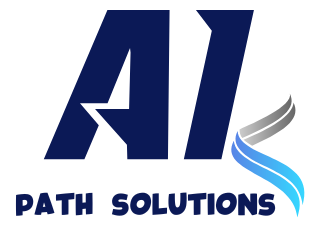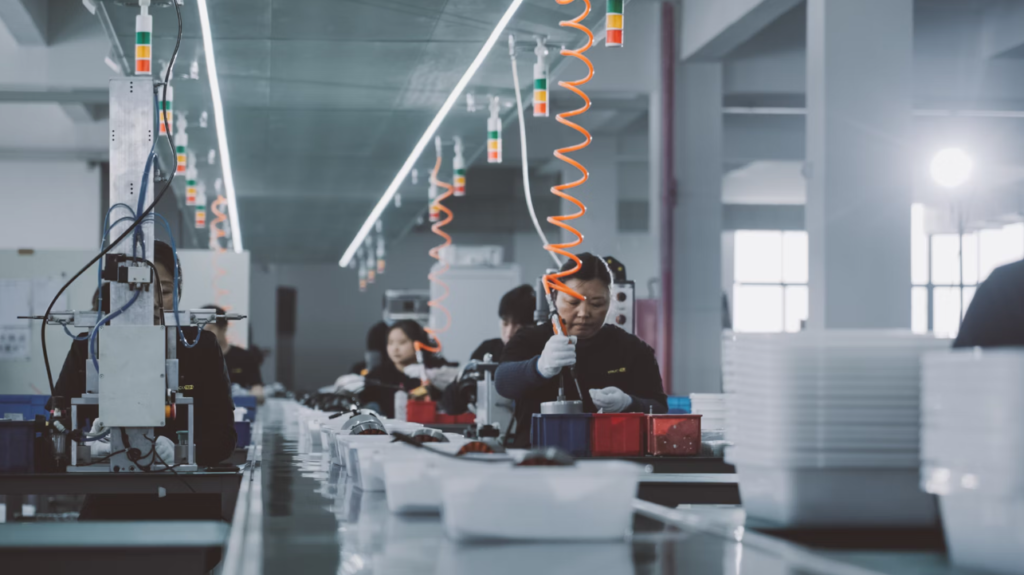Artificial Intelligence (AI) is rapidly transforming the manufacturing industry, bringing about significant changes in how products are designed, produced, and delivered. By integrating AI technologies into their operations, manufacturers are improving efficiency, reducing costs, and fostering innovation. This article explores the key areas where AI is making a substantial impact in manufacturing, including predictive maintenance, quality control, supply chain optimization, and workforce enhancement.
1. Predictive Maintenance
One of the most significant applications of AI in manufacturing is predictive maintenance. Traditional maintenance strategies often rely on scheduled maintenance or reactive maintenance, which can lead to unexpected downtimes and costly repairs. AI-driven predictive maintenance uses machine learning algorithms to analyze data from machinery and equipment, enabling manufacturers to predict when a machine is likely to fail.
By continuously monitoring equipment performance through sensors and data analytics, AI systems can identify patterns and anomalies that indicate potential issues. For example, if a machine’s vibration levels increase beyond a certain threshold, AI can alert operators to investigate before a breakdown occurs. This proactive approach minimizes downtime, reduces maintenance costs, and extends the lifespan of equipment.
Moreover, predictive maintenance can enhance overall equipment effectiveness (OEE) by ensuring that machines operate at optimal efficiency. By reducing unplanned downtime and streamlining maintenance schedules, manufacturers can improve productivity and output.
2. Quality Control
Ensuring product quality is paramount in manufacturing, as defects can lead to significant financial losses and damage to a company’s reputation. AI is revolutionizing quality control processes by enabling real-time monitoring and inspection of products throughout the production cycle.
Machine vision systems powered by AI can analyze images and video feeds from production lines to detect defects and deviations from specifications. These systems can identify issues such as incorrect dimensions, surface flaws, and other anomalies that may not be visible to the human eye. By automating the inspection process, manufacturers can reduce reliance on manual checks, increase accuracy, and speed up production.
Additionally, AI can analyze historical quality data to identify patterns and root causes of defects. By understanding the underlying issues, manufacturers can implement corrective actions and continuous improvement strategies to enhance product quality.
3. Supply Chain Optimization
AI is also playing a crucial role in optimizing supply chain management within the manufacturing sector. The supply chain is a complex network involving multiple stakeholders, including suppliers, manufacturers, distributors, and retailers. AI technologies can streamline these processes by improving visibility, efficiency, and decision-making.
Machine learning algorithms can analyze historical data and market trends to forecast demand more accurately. This predictive capability enables manufacturers to optimize inventory levels, reducing excess stock and minimizing stockouts. By having the right products available at the right time, manufacturers can enhance customer satisfaction and reduce holding costs.
Moreover, AI can improve logistics and distribution by optimizing transportation routes and schedules. By analyzing traffic patterns, weather conditions, and other variables, AI can help manufacturers identify the most efficient delivery methods, ensuring timely shipments and reducing transportation costs.
4. Enhancing Workforce Productivity
While AI is often associated with automation, it can also augment human capabilities and enhance workforce productivity. By automating routine tasks, AI allows employees to focus on higher-value activities that require critical thinking and creativity.
Collaborative robots, or cobots, equipped with AI technologies can work alongside human operators to improve efficiency on the production line. These robots can handle repetitive tasks, such as assembly, welding, or packaging, while humans can concentrate on more complex tasks that require problem-solving and decision-making skills.
AI can also enhance workforce training and development. Virtual reality (VR) and augmented reality (AR) technologies, powered by AI, can create immersive training experiences for employees, allowing them to practice skills and techniques in a safe and controlled environment. This innovative training approach can lead to faster learning curves and improved overall performance.
5. Innovation in Product Development
AI is driving innovation in product development by enabling manufacturers to design and test new products more efficiently. Advanced simulation tools powered by AI can analyze product performance under various conditions, helping manufacturers identify design flaws early in the development process.
Generative design, an AI-driven approach, allows engineers to input design requirements and constraints, and the AI generates multiple design alternatives. This approach can lead to more innovative and optimized product designs that may not have been considered through traditional methods.
Additionally, AI can analyze customer feedback and market trends to identify emerging needs and preferences. By understanding consumer demands, manufacturers can tailor their products and services to meet evolving market expectations.
6. Addressing Challenges and Considerations
While the integration of AI in manufacturing offers numerous benefits, it also presents challenges and considerations that companies must address. One significant concern is data privacy and security, as manufacturers collect and analyze vast amounts of data from their operations. Ensuring that data is protected from cyber threats and unauthorized access is paramount.
Furthermore, the adoption of AI technologies may require significant investment in infrastructure and training. Manufacturers must be prepared to invest in the necessary technology and skill development to fully leverage AI capabilities.
Finally, there is the potential for job displacement due to automation. While AI can enhance productivity, it may also lead to concerns about job security for certain roles. Manufacturers should focus on reskilling and upskilling their workforce to ensure employees can adapt to new technologies and continue to contribute to the organization.
Conclusion
AI is undeniably driving efficiency and innovation in the manufacturing industry. From predictive maintenance and quality control to supply chain optimization and workforce enhancement, AI technologies are reshaping how manufacturers operate and deliver products. By embracing AI, manufacturers can improve productivity, reduce costs, and foster a culture of continuous improvement.
As the manufacturing landscape continues to evolve, addressing challenges related to data security, investment, and workforce adaptation will be crucial. By focusing on these considerations, manufacturers can harness the full potential of AI and position themselves for success in an increasingly competitive marketplace.

